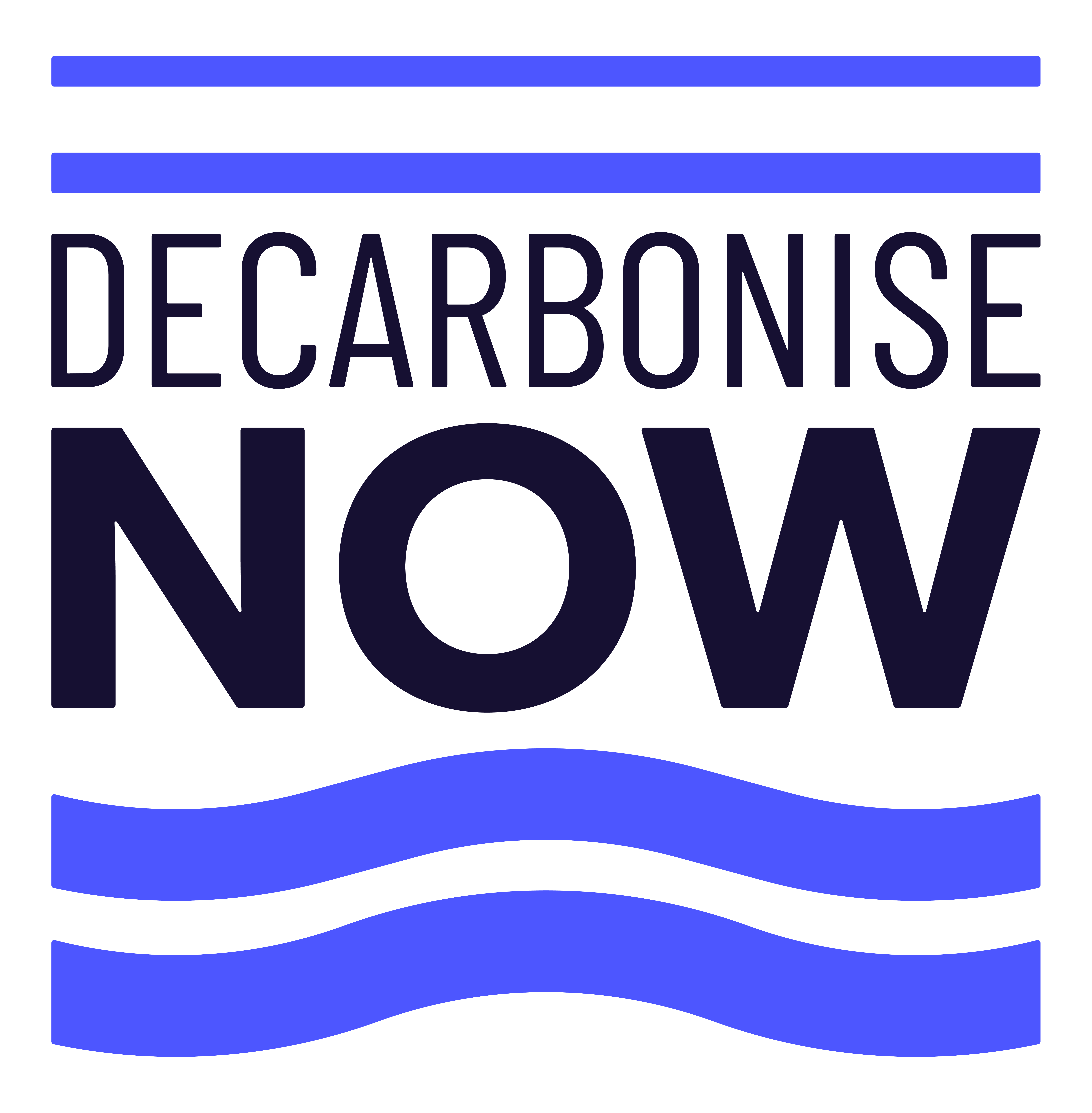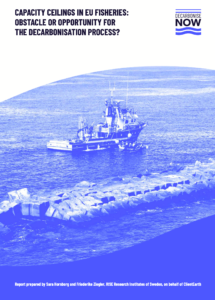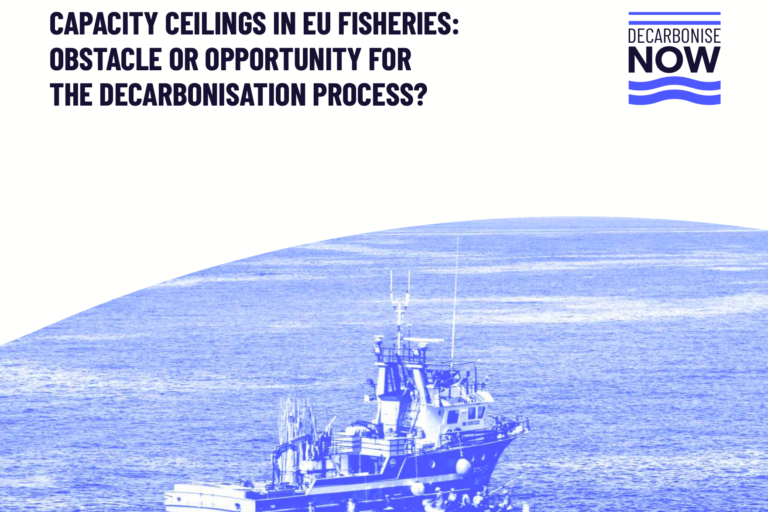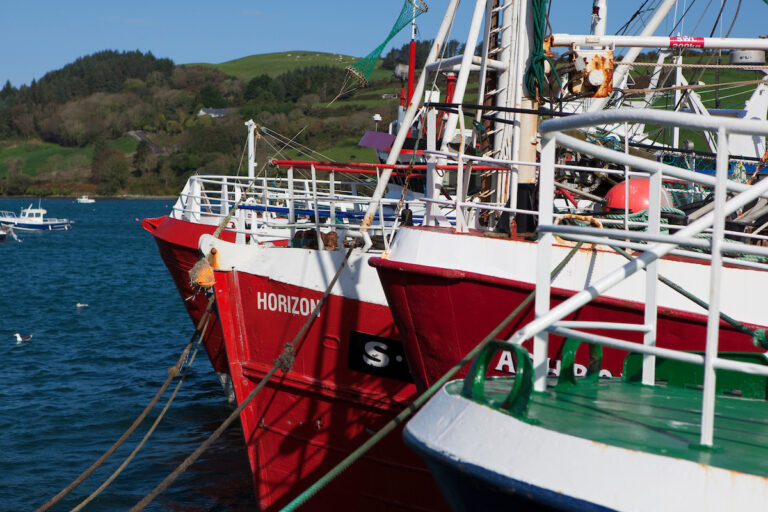JOIN TODAY’S EVENT – 1200 on October 3: Driving the energy transition and climate resilience in EU fisheries
Brussels, 3 October 2024:- The European Commission must stick to its commitment to deliver a roadmap for the energy transition of the EU fisheries sector before the end of the year, said scientists, a former Member of the European Parliament, NGOs and artisanal fishers today, during a Brussels Ocean Week event Driving the energy transition and climate resilience in EU fisheries.
A February 2023 promise by the Commission to deliver the roadmap, aimed at outlining the path to achieving climate neutrality in fisheries by 2050, is now being delayed due to a Commission decision to create a support group for the Energy Transition Partnership (ETP), despite the urgent need to start decarbonising the sector and protecting marine biodiversity from destructive fishing.
“It is vital that the European Commission honours its commitment to deliver a roadmap for the energy transition of the fisheries sector,” said Vera Coelho, Oceana Deputy Vice President in Europe. “The United Nations has emphasised the need for concrete milestones and plans from governments to drive energy transitions in economic sectors. Following the announcement of a roadmap in February 2023, the Commission must publish a clear plan of action by the end of 2024, or it will hinder progress toward the EU’s climate neutrality goal by 2050. The energy transition in EU fisheries must start immediately to create a sustainable, competitive, and resilient sector that reduces reliance on imported fossil fuels and on destructive fishing practices.”
In this context, a recent report from ClientEarth examines the role of capacity ceilings, such as gross tonnage (GT) and total power (kW), in decarbonization efforts. While these ceilings, designed to prevent overfishing, are often pointed by industries as obstacles to the energy transition by limiting storage capacity for less energy-dense fuels, the report finds that many EU member states have not yet reached these limits. This means that viable pathways for hybrid or full decarbonization exist without necessarily exceeding capacity ceilings.
The Commission roadmap can also be an important lever in influencing the Energy Taxation Directive (ETD) negotiations currently ongoing in the Council. As it stands, the negotiations are moving in the wrong direction, as the Hungarian residency is proposing to extend the fossil fuel tax exemption for the maritime sector for another 20 years, further entrenching high-emission fishing practices.
“Phasing out fossil fuels tax exemption in fisheries is crucial to driving decarbonisation”, said Laurène Provost, Lead Lawyer at ClientEarth. “A roadmap with specific measures and financial incentives could guide Member States towards adopting low-impact and energy efficient fishing methods without relying on tax breaks. This would also help them reduce significant emissions that currently reach 7.3 million tonnes of CO2 per year and shift away from tax subsidies which currently amount to between €700 million and €1.3 billion each year.”
“These subsidies disproportionately benefit large industrial fleets which heavily rely on them for their profitability”, said Didier Gascuel, professor in marine ecology and fisheries science at Institut Agro, France, and one of the speakers at today’s event. “Industrial fishing methods, particularly bottom trawling, not only consume vast amounts of energy but also inflict significant damage on marine ecosystems. Decarbonizing this sector involves supporting the phase-out of bottom trawling. This is critical to reducing ocean-related emissions, preserving biodiversity, and safeguarding the ocean’s capacity to act as a natural carbon sink. A shift toward low-impact, energy-efficient fishing methods is crucial for both climate action and economic sustainability.”
“Although President von der Leyen confirmed in the 2024-2029 political guidelines the Commission’s commitment to moving away from fossil fuels, reaching climate neutrality by 2050, and preparing for a 90% emission-reduction target by 2040 – which will be proposed as part of the European Climate Law – the delay in delivering the roadmap risks undermining the EU’s climate targets, including reaching climate neutrality by 2050”, said former Member of the European Parliament Caroline Roose, who also spoke during the event. “Delivering the roadmap by the end of 2024, as promised, is not just a matter of fulfilling a commitment—it is crucial to ensuring the fisheries sector embarks on a path to decarbonization. This roadmap must lay out clear, actionable steps to transition the industry away from fossil fuels, prioritise sustainable fishing practices, and protect marine biodiversity. Transitioning to sustainable fishing practices is good for the marine environment, good for fishery resources, and therefore good for fishers.”
Currently, EU countries disproportionately allocate fishing quotas and funding to those fleet segments with the highest carbon emissions and environmental impact. This approach contradicts the objectives of the Common Fisheries Policy (CFP), undermining the EU’s efforts to combat climate change while leaving low-impact fishers, particularly artisanal fishers, struggling for access to resources and jeopardising their coastal communities’ livelihoods.
“Low impact fishing should be at the centre of the EU energy transition plan and must go hand in hand with a food systems plan, with priority given to those with the lowest carbon footprint and greatest value added”, said Brian O’Riordan, Policy Adviser for Low Impact Fishers of Europe, another speaker at today’s event. “For food from the sea, Article 17 of the CFP should be used to promote best environmental and socio-economic practice through quota and subsidies reallocation – rewarding those who fish in the most sustainable way and using public money for public good. Low impact must be at the forefront of energy and food systems transition.”
Background:
As part of its February 2023 action plan on the energy transition of the EU fisheries and Aquaculture sector, the Commission pledged to deliver a roadmap by 2024, outlining the path to achieving climate neutrality in fisheries by 2050. Yet, recent developments suggest the release of this crucial roadmap may be delayed until 2025 or later, jeopardising both environmental and economic goals. This delay stems from the Commission’s own decision to launch a call of expression of interest to establish a support group to the Energy Transition Partnership (ETP), effectively postponing progress.
The ETP, launched by the Commission in June 2023, brought together stakeholders—including NGOs, industry representatives, and port authorities—to drive forward the energy transition in fisheries. Through dialogues and workshops, these groups have focused on innovation, knowledge gaps, technology, skills and finance. These workshops were expected to inform stakeholders on the development of this roadmap. Despite this momentum, the delay in delivering the promised roadmap risks derailing progress at a time when action is urgently needed.
“The current negotiations around the Energy Taxation Directive at the Council level, which continues to propose fossil fuel tax exemptions for the maritime sector, exacerbate the problem”, said Provost. “Prolonging these harmful subsidies for another 20 years as recently proposed by the Hungarian Council presidency is counterproductive to the EU’s decarbonization goals and delays necessary changes in the fisheries sector.”
“The energy transition of the fisheries must commence without delay to build a sustainable and independent future”, continued Provost. “By phasing out fossil fuels tax exemption in fisheries, we can drive the decarbonisation of the sector by financing low-impact and energy efficient fishing methods that enhance the long-term sustainability of the sector towards a more resilient and environmentally friendly fishing industry.”
ENDS
Contact:
Dave Walsh, [email protected], +34 691 826 764
Emily Fairless, [email protected], +32 478 038490




